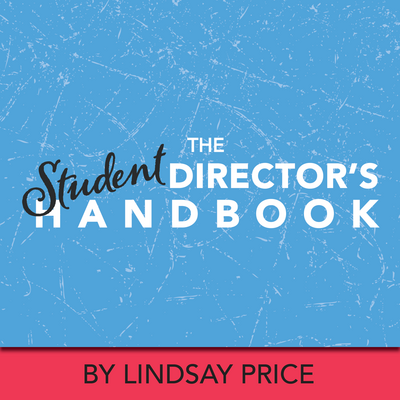Seven Tips for Student Directors in the Classroom
Do you include student directing in your program or are you thinking about introducing it this year? Tfolk playwright Clint Snyder reveals some tips for student directors.
Directing can be extremely difficult and exhausting in a school setting. If you are a student director, directing your first production, the task can seem almost impossible. Luckily, here are a few quick tips to making your first production a successful one.
1. Have Faith in Your Cast & Crew
It can be tough, particularly in a classroom setting, to make choices on who is best qualified for a role or position. If you are a student director, it can be even tougher. The last thing you want people to think is that you are making selections based off who you are friends with. The best thing to do is always to cast who would be most qualified for the position and to let everyone know that their input and work is valued. If they did not get the role they wanted offer them a crew position based on their talents. After all, theater is one of the few collaborative art forms.
2. Develop a Sense of Community
Your cast and crew should feel like a family by the end of the production. Sure families fight and bicker, but at the end of the day they come together for a common goal. You should make it your job to create situations where they can bond together outside of rehearsal. Try visiting a local community or professional production as a group. This will give the students a chance to bond and also allow them to brainstorm for ideas that they could apply to their own production.
3. Plan in Advance
When you can avoid it, never put yourself in a situation where you have to scramble at the last minute. Sure, there will always be last minute adjustments, but major setbacks can be avoided by taking on the big projects at full force before going into rehearsal. If there are rehearsal space restrictions because of the classroom setting, talk them over with your crew far in advance so you can brainstorm ideas together.
4. Devour the Script Beforehand
By the time rehearsals start you should have a familiar sense of what each character’s motivation is, where each scene is set, and the general atmosphere of the play. You should still be open to the artistic process and allowing your crew and cast to bring their own unique creative perspective to the production. However, it is essential that the director is aware of what their perspective on the production is. For example, my script Lord of the Pies is set in a pie shop during the supposed apocalypse. Ask your cast and crew what would be unique about the set based on the circumstances of the play?
5. Find a Unique Twist
Pushing yourself beyond the script to bring some unique directorial aspect to the production can be one of the most rewarding parts of the process. As long as it is done in the spirit of the production, you can find ways to elevate the material. For example, a director might collaborate with the makeup artist and set designer to make all of the actors in a dated piece to appear in black and white.
6. Stay Positive
There is bound to be some negativity that arises in the production process, but the cast and crew rely on you to set the tone for the play. If you are in a bad mood every rehearsal, chances are the cast and crew will be too.
7. Don’t Forget to Advertise
Never forget that you rely on an audience to feed the energy of the production. If a crowd is dull or small, the actors will feel it onstage. Don’t forget to take lots of pictures and utilize social media to get excited about the production that you’ve been working so hard on. Consider having other classes visit and watch the performance. You want the students to be proud of their hard work and showcase it to the rest of the school. The added excitement of having other students watching can be enough to elevate your production to the next level.
Clint Snyder is a playwright and actor who hails from Portland, Maine. He has a fond love of absurd comedy and currently has two plays published through Theatrefolk, To Kill a Mocking Birdie and Lord of the Pies.
Related Articles
The Student Director's Handbook
by Lindsay Price
Help students take their show from first audition to opening night with The Student Director’s Handbook. This easy-to-use ebook is full of guidelines, tips and templates designed to help students create a vision, circumvent problems and organize rehearsals on their way to a successful production.
The Rehearsal Companion
by Kerry Hishon
You’ve chosen the play, paid the royalties, done the script analysis, held your auditions, and cast the show. Tomorrow is the first rehearsal. Are you ready? Really ready? The Rehearsal Companion can help!





